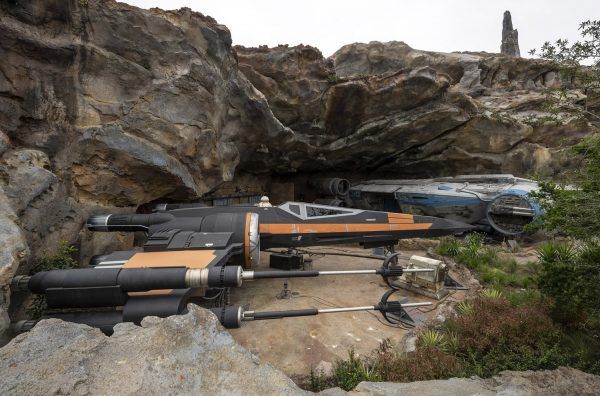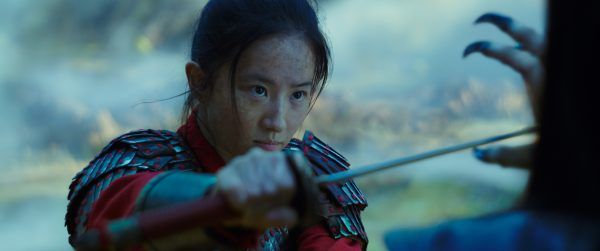Disney has had a truly catastrophic year. The coronavirus saw an end to a staggering amount of revenue streams for the company, from the cancelation of live sports (aired on ABC and ESPN) to the total decimation of its theme parks domestically and abroad, not to mention the lack of theatrical movies and the still-total shutdown of the cruise industry. In light of so much bad, though, Disney+ has flourished, exceeding projections for growth and becoming a one-stop shop for premiere Disney product in the middle of a prolonged and frustrating quarantine, with everything from Hamilton to the upcoming Pixar feature Soul making its debut on the direct-to-consumer platform, alongside hotly anticipated original series like Marvel Studios’ WandaVision and the second season of The Mandalorian. And today the company announced “a strategic reorganization of its media and entertainment businesses.”
But what does this mean exactly?
Well, according to the official release, “Under the new structure, Disney’s world-class creative engines will focus on developing and producing original content for the Company’s streaming services, as well as for legacy platforms, while distribution and commercialization activities will be centralized into a single, global Media and Entertainment Distribution organization.” The statement notes that this new Media and Entertainment Distribution unit “will be responsible for all monetization of content—both distribution and ad sales—and will oversee operations of the Company’s streaming services. It will also have sole P&L [profit and loss] accountability for Disney’s media and entertainment businesses.”
The creation of content, across all platforms, will be handled by three distinct groups – Studios (run by Alan Bergman and Alan Horn), Sports (run by Jimmy Pitaro) and General Entertainment (run by Peter Rice). The Media and Entertainment Distribution group will be headed by Kareem Daniel, who was formerly President, Consumer Products, Games and Publishing and whose 14-year career at the company included working closely with current CEO Bob Chapek on a number of somewhat lackluster Disney Parks projects, including Pixar Pier at Disney California Adventure and Star Wars: Galaxy’s Edge at Disneyland and Walt Disney World. All five leaders will report to Chapek. Disney Parks, Experiences and Products will continue to operate under its existing structure, led by Josh D’Amaro, Chairman, Disney Parks, Experiences and Products. Rebecca Campbell will serve as Chairman, International Operations and Direct-to-Consumer. Bob Iger, in his role as Executive Chairman, will continue to direct the Company’s creative endeavors.
According to the release, the Studios segment will “focus on creating branded theatrical and episodic content based on the Company’s powerhouse franchises for theatrical exhibition, Disney+ and the Company’s other streaming services. The group will include the content engines of The Walt Disney Studios, including Disney live action and Walt Disney Animation Studios, Pixar Animation Studios, Marvel Studios, Lucasfilm, 20th Century Studios and Searchlight Pictures.” Rice’s General Entertainment division is all about “creating general entertainment episodic and original long-form content for the Company’s streaming platforms and its cable and broadcast networks. The group will include the content engines of 20th Television, ABC Signature and Touchstone Television; ABC News; Disney Channels; Freeform; FX; and National Geographic.” And Pitaro’s Sports division will be primarily focused on “ESPN’s live sports programming, as well as sports news and original and non-scripted sports-related content, for the cable channels, ESPN+, and ABC.” (You know I’m wondering if the Sports division oversees Holey Moley.) The official statement notes that along with the reorganization, “the Direct-to-Consumer and International business will no longer be managed on a combined basis.”
“Given the incredible success of Disney+ and our plans to accelerate our direct-to-consumer business, we are strategically positioning our Company to more effectively support our growth strategy and increase shareholder value,” Mr. Chapek said in a statement. “Managing content creation distinct from distribution will allow us to be more effective and nimble in making the content consumers want most, delivered in the way they prefer to consume it. Our creative teams will concentrate on what they do best—making world-class, franchise-based content—while our newly centralized global distribution team will focus on delivering and monetizing that content in the most optimal way across all platforms, including Disney+, Hulu, ESPN+ and the coming Star international streaming service.”
According to CNBC, the move was made, in part, due to the suggestion of Dan Loeb, a vocal investor whose company Third Point Capital is one of the company’s biggest shareholders. Loeb suggested that the company put its $3 billion dividend back into creating more triple-A content for the streaming service. (Third Point bought even more shares of the company earlier this year, rallying around the direct-to-consumer platform.) After the announcement, stock prices rose 5%.
Clearly, this is a move from the company to consolidate its efforts and focus on streaming, while many of the business units still remain up in the air. (Disneyland, for instance, is still closed, with Governor Newsom reportedly sending a team to Walt Disney World to investigate the safety procedures in place at that theme park.) The goal isn’t just to pump up the content and increase subscriptions, but to figure out how to monetize that base further. In other words, if the company is being forced to, say, release Black Widow on Disney+, how can they still make money and turn it into much more of a cross-company event instead of something that just shows up on your Roku one lonely Friday afternoon? (It seems like the “premier access” experiment with Mulan, which required an additional $30 fee, was a one-off.)
The continued emphasis will be on making Disney+ an integral, holistic part of the Disney experience, where storylines will crossover between original shows and theatrical experiences, a model that will (god willing) be rolled out with the next phase of Marvel Studios content, where original series like WandaVision will directly inform features like Doctor Strange and the Multiverse of Madness. (It’ll be interesting to see if this will be applied to things like Star Wars or Pixar’s Toy Story universe.)
This also means that you will probably see more integration between the business units and Disney+; those night-long specials about the newest Disney Parks attraction could easily premiere on Disney+ instead of going the linear route. Whatever will come about, this announcement marks a truly unprecedented, brand-new chapter of the Disney saga.




